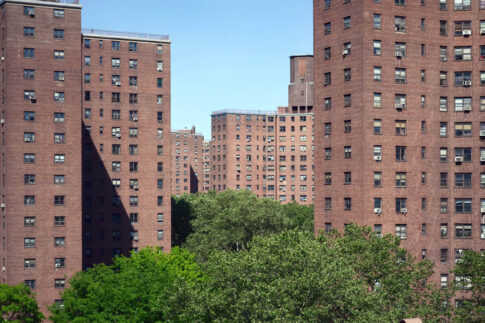
As of January 1, 2022, potential homebuyers may be finding it tougher to finance the purchase of units in cooperatives and condominiums. In response to last June’s tragic Surfside, Florida condo collapse, mortgage giant Fannie Mae, a government-sponsored enterprise (GSE), is taking measures to help protect homebuyers and aging co-op and condo infrastructure. Fannie Mae released the following new requirements and guidelines impacting the eligibility of loans for co-op and condo units in their October 2021 Lender Letter:
Significant Deferred Maintenance and Unsafe Conditions
The GSE will no longer back loans to buyers seeking to purchase units in residential condo and co-op buildings with unsafe conditions or significant deferred maintenance until the required repairs have been made and documented. Significant deferred maintenance refers to conditions that are severe enough that they may impact the safety, soundness, structural integrity, or habitability of a condo or co-op unit or the overall building. Per this new requirement, buildings subject to New York City’s Facade Inspection Safety Program (FISP) with an Unsafe or Safe With a Repair and Maintenance Program (SWARMP) designation will be considered ineligible for backing until repairs have been completed and approved by the NYC Department of Buildings (DOB), and the building is classified as Safe.
Special Assessments
Fannie Mae has enacted stricter eligibility review requirements for any condo or co-op that has issued or is planning to issue a special assessment that addresses deferred maintenance. Lenders are now required to obtain proof that the co-op or condo are able to fund the repairs. In addition, if the special assessment is related to safety, soundness, structural integrity, or habitability, all related repairs must be completed, or the co-op or condo will be considered ineligible for backing.
Reserve Requirements
Recognizing the importance of reserve funds to fund critical maintenance and repair projects, Fannie Mae has also strengthened its requirement that co-op and condo boards keep a 10% operating budget reserve, and will no longer allow lenders to obtain a reserve study in lieu of the reserve requirement, as was their previous practice. However, Fannie Mae also strongly encourages co-ops and condos to obtain a reserve study, keep it updated, and follow its recommendations for reserves and maintenance schedules.
These new requirements highlight the reality that our building stock infrastructure is aging and that there is a tendency for boards to defer necessary work, or make superficial or temporary repairs in lieu of comprehensive (i.e. more costly) repair programs, often to a building’s great detriment. Regular maintenance and careful budget planning can save money in the long run as well as insure against tragedies such as the collapse in Surfside.
For more details on these new requirements and guidelines, which are temporary until further notice, read Fannie Mae’s Lender Letter.
Contact RAND
If your building is in need of capital improvement work, repairs, or a capital needs assessment or reserve study, contact RAND at (212) 675-8844 or info@nullrandpc.com. We will be happy to assist you.
